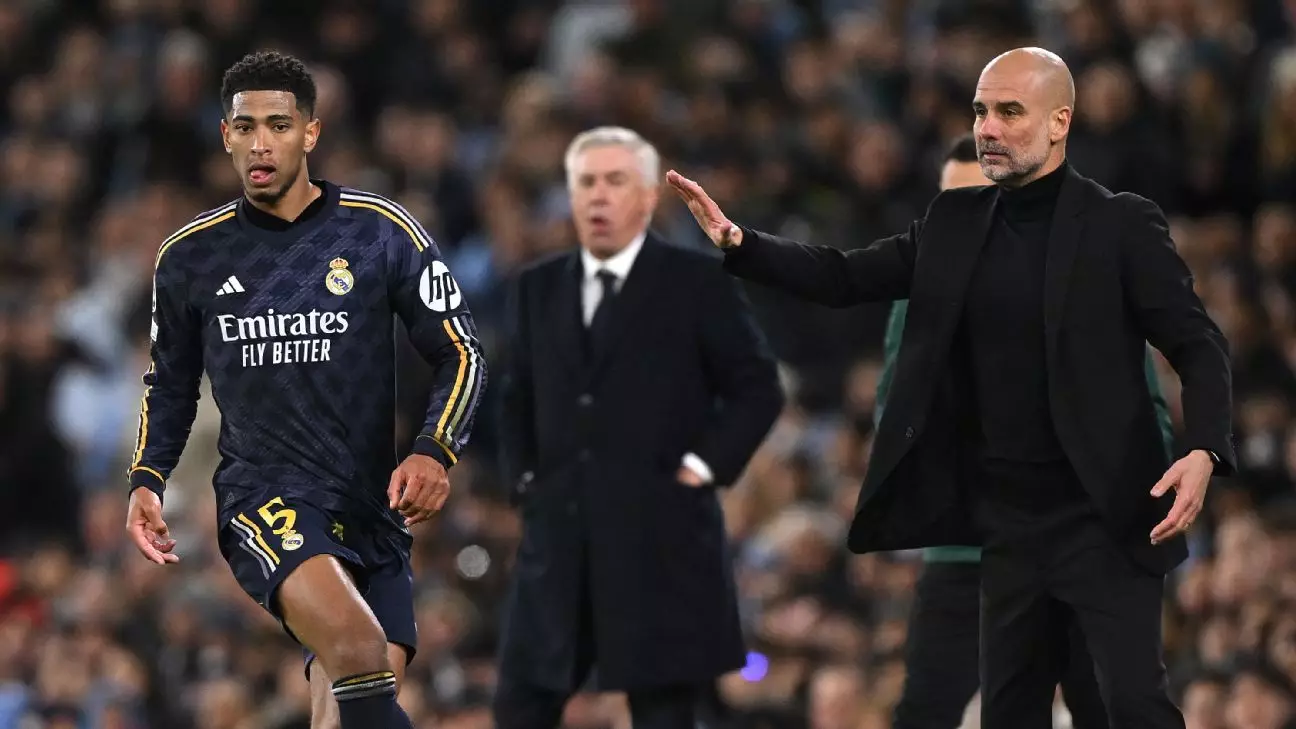Pep Guardiola, an icon in the football world and known for his tactical brilliance, has recently entered the discourse surrounding Jude Bellingham’s controversial sending off in LaLiga. Bellingham’s dismissal for allegedly swearing at the referee has raised eyebrows, not just for its implications in the match against Osasuna, but also for the broader conversation about the treatment of referees in football. Guardiola’s comments reflect a nuanced understanding of these dynamics, shedding light on the complex interplay between player conduct and referee authority.
The conflict ignited when Bellingham, who had just scored a crucial goal for Real Madrid in their Champions League triumph over Manchester City, faced scrutiny following his red card in LaLiga. The crux of the matter lies in the claim by Bellingham’s camp that the midfielder simply expressed frustration towards referee Jose Luis Munuera Montero by saying “f— off” rather than the harsher “f— you.” Real Madrid’s response has been to criticize the harshness of the decision, arguing it misrepresents the spirit of Bellingham’s words. Meanwhile, the Spanish Football Federation has denounced the online abuse directed at the referee, adding another layer to this highly charged issue.
In press conferences filled with tension, Guardiola firmly stated that the focus shouldn’t overly dwell on the semantic differences in Bellingham’s language. Instead, he maintained that the essence of the argument lies in intent. “It’s not about the phrase,” he noted. “What matters is the intention behind the words. If you can insult someone with a smile, is that really so bad?” Such a perspective encourages a more profound reflection on human interactions within the sport, akin to a philosophical inquiry into the nature of insults and intentions.
Guardiola also highlighted the importance of treating referees with the respect they deserve. His remarks proffering a debatable stance—that referees should be “left in peace”—underscores a growing sentiment within the football community that the sport should strive for more civility. By insisting on a less confrontational approach, Guardiola insinuated that the players should bear some responsibility for maintaining harmony on the pitch.
Despite the gravity of the incident involving Bellingham, Guardiola expressed he has not explicitly instructed his players to monitor their language when dealing with officials. He conveyed trust in their ability to make wise decisions. Refocusing on his team’s preparation and performance rather than potential referee interactions suggests that Guardiola prioritizes broader tactical awareness over micromanagement, embodying a management style that often bears fruit in high-stakes matches.
The unfolding drama around Bellingham not only raises questions about disciplinary actions in football but also reveals the intricate relationship between players and referees. Guardiola’s insights provide valuable viewpoints on addressing these issues. As football continues to evolve, conversations about respect, intent, and player conduct will remain paramount in shaping the fabric of the game. Perhaps, moving forward, a culture of understanding can help ease the tensions that often arise within the beautiful, yet fiercely competitive, sport of football.

